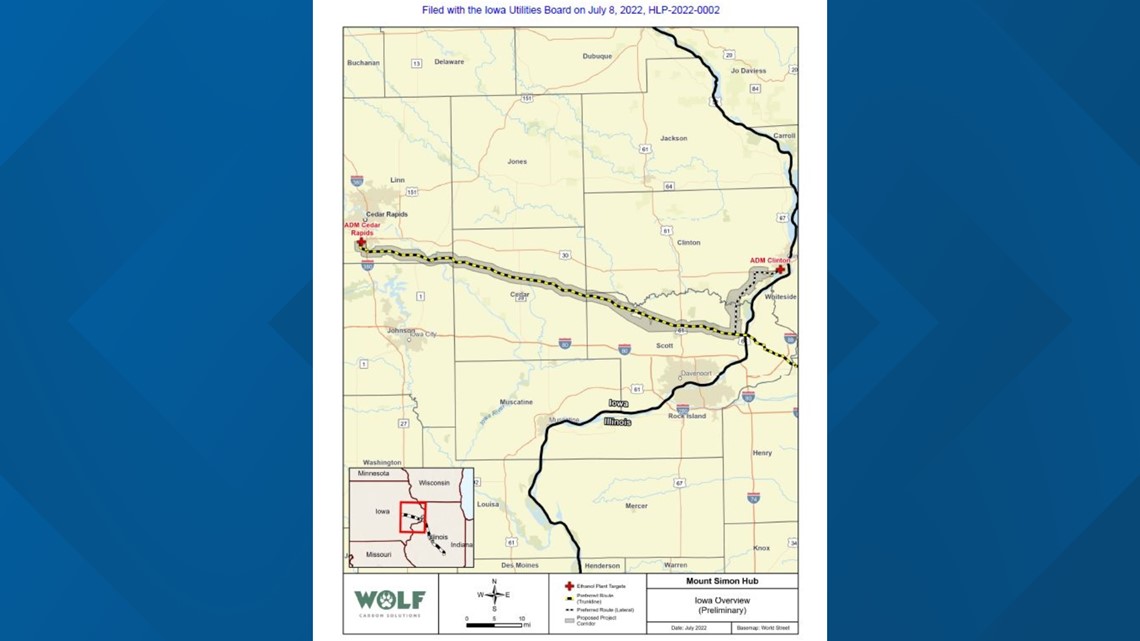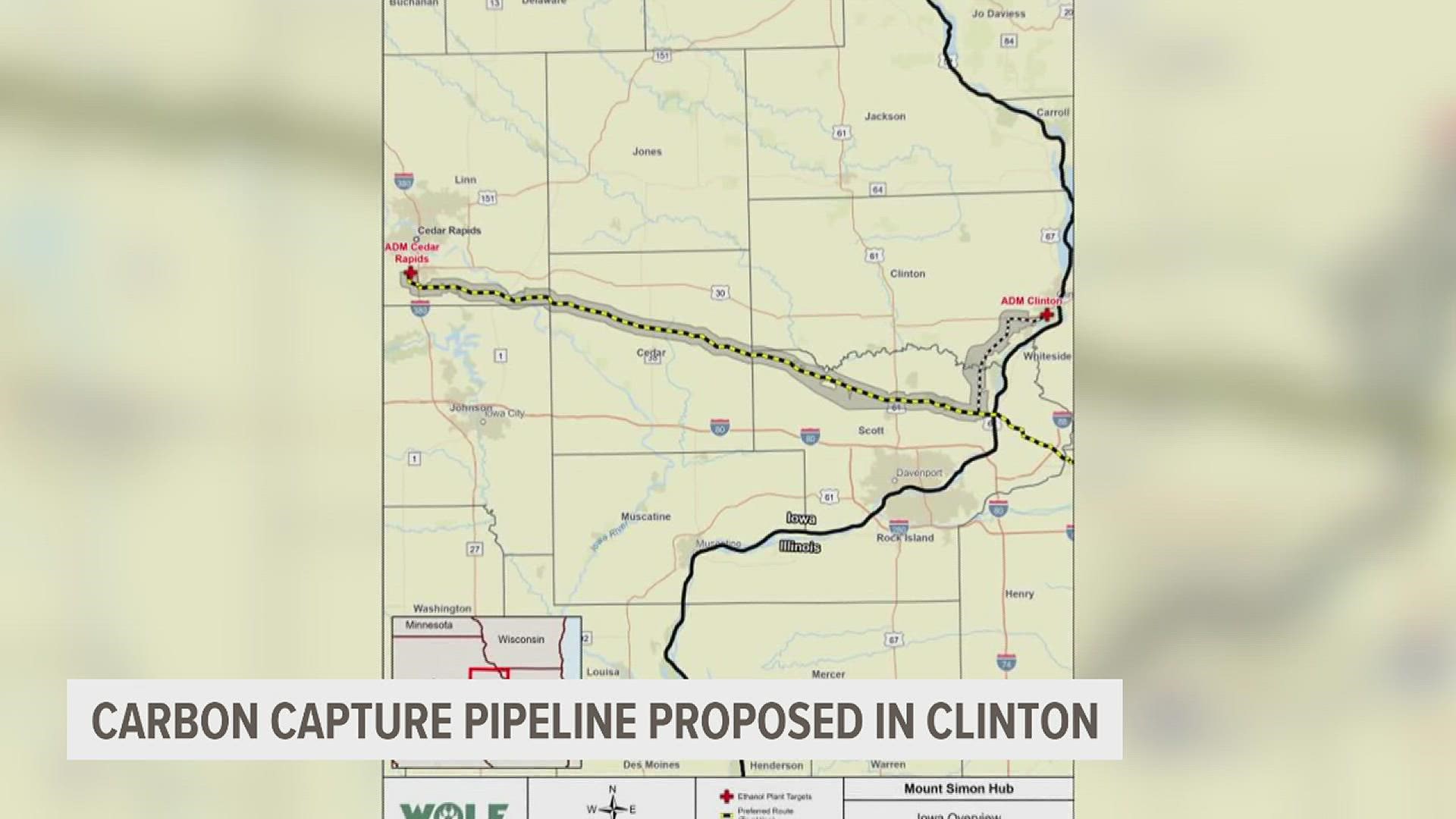CLINTON, Iowa — A proposed pipeline that would transport liquid carbon dioxide from ethanol plants in Cedar Rapids and Clinton would span about 280-miles across five Quad City area counties, according to a preliminary map of the project.
Archer Daniels Midland Company, known as ADM, is partnering with Wolf Carbon Solutions to build the underground carbon capture pipeline that would transport the byproduct of ethanol to an ADM sequestration site in central Illinois.
Other companies could "plug" into the pipeline if they wish to decarbonize.
The proposed pipeline would pass through Clinton and Scott counties in Iowa and Rock Island, Henry and Stark counties in Illinois. That's in addition to Linn, Johnson and Cedar counties in Iowa and Peoria, Tazewell, Logan, DeWitt and Macon counties in Illinois.
It's the third such pipeline proposed in less than a year in Iowa. Summit Carbon Solutions and Navigator CO2 Ventures both proposed larger pipelines that would cross over five states.
The Navigator pipeline was originally routed through Clinton County, but plans have since changed.
The carbon capture pipelines are meant to help the ethanol industry remain viable as federal and state governments look to limit greenhouse gas emissions.
"It's gonna be a decarbonization tool for this area of the Midwest to sustain existing businesses and attract new businesses for the energy transition that we're heading in to," said Nicholas Noppinger, Senior VP of Cooperate Development at Wolf Carbon Solutions.
As part of the regulatory approval process, representatives from Wolf Carbon Solutions and the Iowa Utilities Board will host public information meetings in each of the counties the pipeline will run through. On Tuesday, Aug. 30, the companies met with residents in Clinton County to address their questions and concerns.
In Clinton County, the pipeline will connect with ADM in Clinton and travel south around Camanche before entering Scott County. It will cross the Mississippi River north of LeClaire.


Some residents brought up concerns about the pipeline leaking. The liquid carbon dioxide the pipes carry is classified as a hazardous material.
"Really, CO2 pipelines have a very safe history," Noppinger said. "There are tens of thousands of miles of pipelines of more hazardous liquids and gases underneath the ground and there are protocols in place at the federal and state level that make sure that nothing bad happens."
The carbon capture pipelines proposed across Iowa have received opposition because Iowans are concerned companies will use eminent domain to seize land from unwilling landowners. Eminent domain is the power of the government to take private land for public use or benefit.
Noppinger assured Clinton County residents that won't be the case with this pipeline.
"We're trying to do this entire project through volunteer easement," he said. "Our team, through their collective career, has never done eminent domain and we intend to stick with that with this project."
Wolf Carbon Solutions is looking at a two-mile corridor for the pipeline, allowing for right-of-way negotiations.
The pipeline would run five feet underground and be capable of transporting 12 million tons of Co2 gas per year.
Wolf Carbon Solutions will be continuing its landowner outreach, and if all goes according to plan, Noppinger said the company hopes to begin construction in 2024 and have the pipeline operational in 2025.
A public informational session for Scott County residents was later held on Wednesday, Aug. 31 at noon at the RiverCenter (Adler Theater), 136 E. Third Street, Davenport.
A virtual meeting will be held on Sept. 19 at 6 p.m.

